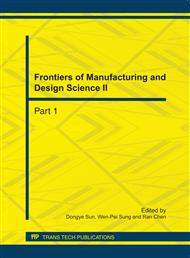p.1105
p.1110
p.1115
p.1120
p.1125
p.1130
p.1138
p.1143
p.1147
The Experimental Research on 2×2 Game with Unique Mixed Strategy Nash Equilibrium
Abstract:
This paper reports the results of an experimental study of playing a simple 2×2 non-zero sum game with asymmetrical payoff function. Subjects make decisions about their estimation for their opponent, and then each of them chooses a strategy after their roles are changed at random. As a result, steady states which subjects estimates are quite different from those predicted by the Nash equilibrium theory. Through comparative analysis, it is found that the selections of strategies are related to others’ payoff as well as subjects’ own return. And what is more, the subjects’ risk attitudes influence the choice of game.
Info:
Periodical:
Pages:
1125-1129
Citation:
Online since:
October 2011
Authors:
Keywords:
Price:
Сopyright:
© 2012 Trans Tech Publications Ltd. All Rights Reserved
Share:
Citation:


